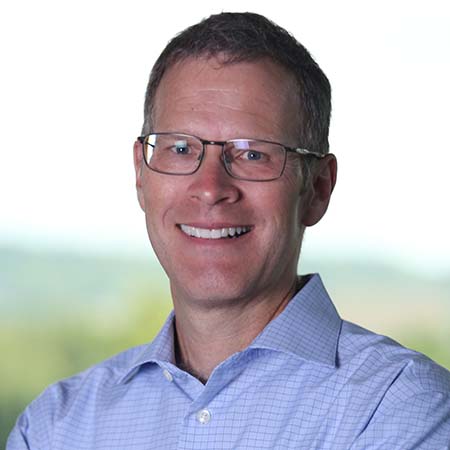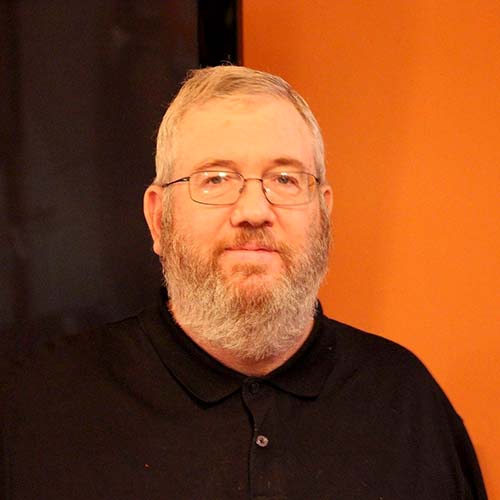ST. PAUL, Minn. — The Northwest Area Foundation has given more than 40 percent of its grant money to Native-led organizations for the past 10 years and is poised to renew that highly unusual commitment for the next decade.

Kevin Walker, president and CEO of the St. Paul, Minn.-based foundation, said total grants to 128 tribal-led organizations have come to $75.3 million since 2012.
That includes $5 million in grant money from the Federal Home Loan Bank of Des Moines, which NWAF has regranted to Native community development financial institutions (CDFIs). It also has loaned an additional nearly $1.9 million to Native CDFIs, a type of specialized financial services firm that lends primarily to Native Americans.
Want more news like this? Get the free weekly newsletter.
Walker declined to give an estimate of how much money would go to Native organizations over the next 10 years, but added that “I am definitely comfortable saying that we intend to maintain or even intensify our commitment to targeting at least 40 percent of our grant and investment dollars to Native organizations.”
NWAF was founded by the son of the owner of the Great Northern Railway, which was founded in the late 1800s by railroad titan James J. Hill. In existence until 1970, the Great Northern Railway operated between St. Paul and the railroad’s western terminals in Portland and Seattle, crossing eight states that share a geography with 75 tribal nations. Access by rail brought many non-Native settlers to the area, helping to develop extractive industries like timber, mining and agriculture, according to Walker.
“Tribal communities in our footprint were often on the losing end of that,” Walker said. But he described the foundation (started by Hill’s son, Louis W. Hill, in 1934) and those tribal communities as now “joined at the root.”
“Their history and their current situation is linked to this wealth that was developed by James J. Hill and his colleagues,” which makes for a “strong connection” between the foundation “and the Native communities around us,” Walker said.
To say that connection is unusual would be to understate it.
“Our 40 percent commitment is a really deliberate counterpoint to what tends to happen in philanthropy,” Walker said.
To that point, data on philanthropic giving demonstrate a pattern of under-funding for Native American communities. According to the Native Americans in Philanthropy trade group, philanthropic funding targeted to Native Americans remains less than 0.5 percent of annual foundation grant dollars nationally, while Native Americans make up nearly 2 percent of the U.S. population.
The trend holds true for the region served by Northwest Area Foundation, Walker said, noting that “these are communities of high need.”
“There’s plenty of opportunity to fund interesting things that can really make a difference in people’s lives,” Walker said. “Too often, organized philanthropy seems to shy away from that. So, we have just embraced the notion that we’re different. The 40 percent commitment was a way for us to say this is central to our strategy, and it cuts across everything we fund.”
Walker said NWAF has no specific Native set aside for its programs, and noted the commitment is achieved organically “whether it’s supporting CDFIs, or enterprise development, or workforce development, which we do some of.”
“We also do program-related investments, typically loans, that are earning a lower than market rate of return, to advance a social purpose, and 40 percent of those also go to Native groups,” he said. “For us, it’s about putting a stake in the ground and saying: While everybody else seems to avoid Native communities, we embrace them, we want to be there, we see great opportunity to do effective funding.”
Walker estimates NWAF’s actual grants and investments in tribal groups as “probably closer to 50 percent” of its overall annual giving.
Besides its robust work with Native CDFIs and the national Native CDFI Network, Walker pointed to grantees like Thunder Valley Community Development Corp. on the Pine Ridge reservation in South Dakota and the NDN Collective in Rapid City, S.D., both of which were founded by Nick Tilsen.
NWAF is also a longtime funder of the First Peoples Fund of Rapid City, which focuses on Native artists.
The foundation targets both reservation and urban Indian groups, such as those in the Twin Cities, Portland and Seattle.
Its “enterprise development” grants, substantial fundings of up to $500,000 recently, have gone to groups like the Duluth, Minn.-based American Indian Community Housing Organization (AICHO), which received $250,000 this year “to support its efforts to create more opportunities for Indigenous food entrepreneurs and artisans, as well as more awareness and support for the Indigenous economy in Duluth.”
AICHO also received $200,000 from NWAF in 2018 for its Wazhashk Azhegiiwe (Muskrat Returns) Indigenous Economic Development Initiative and $25,000 in 2020 for pandemic-related support.
“Without Northwest Area Foundation, it would have been harder to launch those dreams,” said LeAnn Littlewolf, former economic development director of AICHO, referring to the nonprofit’s Indigenous food and artistic ventures. “They believed in us. Their support honors us. It gives hope.”
Littlewolf, Maaiin’gan Doodem and Anishinabe/Gaa-zagaskwaajimekaaq Band of Ojibwe and now senior program director at Northland Foundation in Duluth, said NWAF funding had been instrumental in developing a gift shop at the AICHO building.
Called Indigenous First Art & Gift Shop, the business has grown revenues to $600,000 in three years, with two-thirds of that going to Indigenous artists, she said. The shop prints high-end reproductions of artists’ works on canvas for sale. AICHO has exhibited the work of some 80 Indigenous artists.
In 2018, the organization bought a vacant grocery store in the Lincoln Park district of Duluth.
“No one was doing robust business development in this area,” she said, noting the local community did not have a grocery store. NWAF funding is helping AICHO to develop the Niiwin Indigenous Food Market at the site.
According to AICHO: “The Niiwin Market will launch a new community focus on Indigenous entrepreneurship, health, food system, and economic justice while sharing the Indigenous story of this land and the history of our food practices.”
Also under development with NWAF help is an art gallery and coffee shop.
Walker believes there are many worthy Native-led organizations like AICHO, First Peoples Fund, NDN Collective and Thunder River that have been overlooked by traditional philanthropy. As such, NWAF is actively seeking them out.
“We intend to stay the course and keep partnering with really vibrant and effective organizations and help them tell their story to the broader world,” he said.
